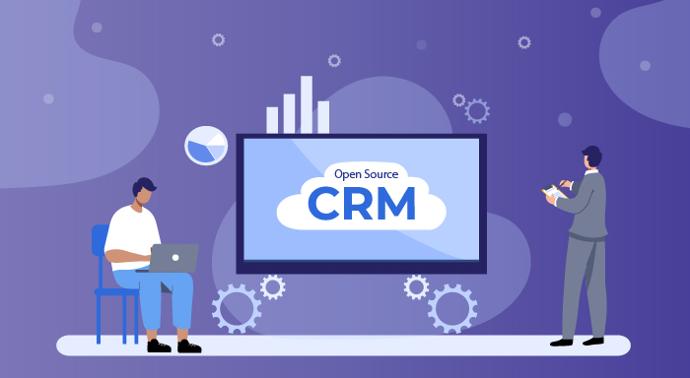Introduction
In today's competitive market, architecture firms face numerous challenges, such as managing client relationships, streamlining workflows, and fostering business growth. Customer Relationship Management (CRM) systems have become indispensable tools for businesses across various industries, including architecture. While many CRM solutions are available, open source CRM platforms offer unique advantages, allowing architecture firms to tailor their systems to meet specific needs while keeping costs in check. In this blog, we will explore the benefits of using open source CRM for architecture firms and how it can revolutionize the way they manage projects and build lasting client relationships.

What is CRM and Why is it Crucial for Architecture Firms?
CRM is a software system that enables businesses to manage interactions with existing and potential clients. For architecture firms, CRM goes beyond just tracking client contact information; it serves as a centralized hub to manage project details, communicate with clients, track leads, and monitor the progress of ongoing projects. An effective CRM solution streamlines communication, improves collaboration within teams, and enhances customer service.
Benefits of Open Source CRM for Architecture Firms
Cost-Effective Solution: Open source CRM eliminates the need for expensive licensing fees, making it a budget-friendly option for architecture firms, especially small and medium-sized enterprises (SMEs). The savings can be invested in other crucial areas, such as marketing efforts or staff development.
Customization Flexibility: Every architecture firm operates differently, and their CRM should reflect their unique workflows and requirements. Open source CRM allows for complete customization, enabling firms to tailor the system to match their specific processes. Whether it's creating custom data fields or integrating with other tools, the possibilities are vast.
Enhanced Security and Control: With an open source CRM, architecture firms have complete control over their data and can host it on their own servers. This level of control ensures sensitive client information is secure and compliant with data protection regulations.
Community Support and Continuous Improvement: Open source CRM platforms benefit from a community of developers, users, and contributors who actively improve the software. Regular updates and enhancements are driven by community feedback, ensuring that the CRM stays up-to-date and relevant to the evolving needs of architecture firms.
Seamless Integration with Architectural Tools: Open source CRM can be seamlessly integrated with various architectural software applications, such as project management tools, CAD software, and accounting systems. This integration streamlines data flow and avoids duplication of efforts, boosting overall efficiency.
Key Features of Open Source CRM for Architecture Firms
Client Database and Communication: Maintain a comprehensive client database with detailed profiles, communication history, and preferences to ensure personalized interactions.
Project Management and Progress Tracking: Monitor project progress, timelines, milestones, and resources allocation. Track communication with clients during various stages of projects.
Lead and Opportunity Management: Efficiently manage potential clients, nurture leads, and track opportunities from the initial inquiry to project commencement.
Task and Calendar Management: Schedule appointments, meetings, and set reminders for crucial tasks, helping teams stay organized and on track.
Analytics and Reporting: Gain valuable insights through analytics and reports, allowing architecture firms to identify patterns, trends, and opportunities for improvement.
Conclusion
In the fast-paced world of architecture, efficient management of client relationships and projects is paramount to success. Open source CRM offers architecture firms an opportunity to leverage cost-effective, customizable, and secure solutions to optimize their workflows and enhance client interactions. With seamless integration capabilities and continuous community-driven improvements, open source CRM presents a compelling proposition for any architecture firm looking to take their business to new heights. Embracing an open source CRM can be a game-changer, fostering growth, and cementing a firm's position as a client-focused, efficient, and innovative architectural powerhouse.